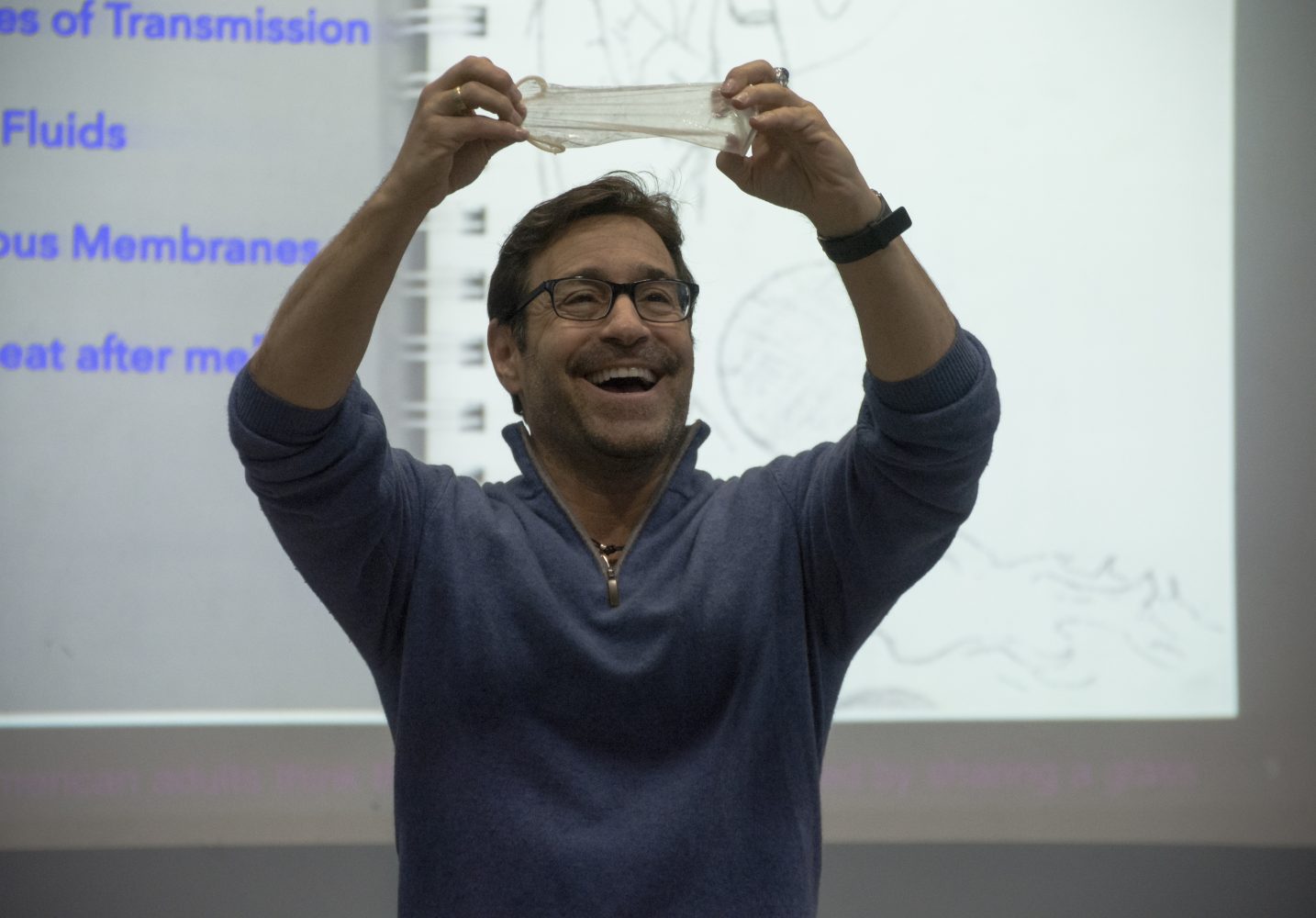Dec. 1 is globally recognized as World AIDS Day. This past Friday, Scott Fried, an international, award-winning speaker, youth educator and HIV/AIDS advocate spoke at the University of Rhode Island. He delivered three separate presentations about true intimacy, sexual health and safe sex and an interfaith non-denominational healing service. The scheduling of Fried’s visit was a joint decision between Hillel director Amy Olson and Annie Russell, the director of the Gender and Sexuality center. Fried’s visit also commemorated his 30th year being a survivor of HIV.
Fried has lectured at over 1000 colleges, military bases, synagogues and youth retreats presenting sessions about bullying, the secret lives of teens, the ABC’s of sexually transmitted diseases and the definitions of real consent. His goal: to be relevant and connect with his audience by being able to speak about a variety of topics.
Diagnosed with HIV three decades ago, Fried’s realization of the true impact he could make on an adolescent audience did not come until a friend of his became his 73rd friend to die of AIDS. Richie had kept a journal in which he wrote about the hope he had for his future, and a few pages were read aloud at his funeral. These few pages began to make Fried consider his own journal. Fried decided that he did not want to be remembered through written words, and did not want to be just another statistic of the AIDS epidemic. In the text of his autobiography, Fried said, “I believe that my real job is to uncover people’s magnificence so that they can know it in themselves and see it in others. It is my hope, thereby, that my presence in your life will help you to recognize, cherish and value your own.”
Amy Olson, director of the URI Hillel chapter, originally met Scott Fried over 30 years ago in the late 1980s.
“At that time, we were in the midst of the AIDS epidemic and he had not all that long ago been diagnosed with HIV and was beginning his educational mission to talk to young adults about AIDS education and issues of self-esteem and loving oneself,” said Olson. “A year ago, I went to the Hillel professional conference and low and behold Scott Fried was there again. We renewed our friendship and I said ‘it would be great for you to come to URI.’ When I came back for spring semester of last year I reached out to Annie Russell at the Gender and Sexuality center to have Scott come to campus and do a joint program with Hillel.”
Fried’s first presentation was titled, “Social Media and True Intimacy,” and focused on the ways social networking allows us to broadcast an image of ourselves that is altered. Furthermore, the way we can keep a pocket of secrets. “There’s the truth, and then there’s the whole truth. True intimacy is finding something out about yourself in the presence of another,” said Fried.
The presentation continued, and Fried addressed the numerous ways in which cyber-media allows members to engage in open-ended conversation, leading to a type of “fake” intimacy. Fried referenced ghosting and bailing as two ways in which cyber-media can produce “fake” intimacy. Ghosting and bailing are the acts of suddenly ceasing all communication with someone in hopes they will get the hint and stop trying to communicate back. “Our phones don’t allow us to be awkward. We are not engaging in civilized conversation. You cannot hear enthusiasm in a text. We allow ourselves to be lied to,” said Fried.
The second lecture Fried presented went in-depth about STI’s and STD’s and their relation to HIV/AIDS. In addition, the lecture educated about the ways HIV/Aids can be transmitted from person to person, and numerous methods for prevention. The three modes of transmission include mother to child through breastfeeding or blood through the placenta, drug use through an IV or shared needle, and unprotected sex. The four fluids that are used in transmission are blood, semen, breast milk and vaginal secretions. The areas of the body in which transmission occurs are known as Mucous membranes, and are any pink, flushy surface that is exposed such as canker sores in the cheeks or the roof of the mouth. “The virus just has to slide right through. HIV is a retrovirus. It steals a strand of RNA and turns into into its own DNA,” said Fried.
In the evening, Fried accompanied Olson at the Hillel center for a special non-denominational Interfaith Healing Service and Shabbat Dinner. Almost 40 people attended the event, where he concluded his stay at the University with a presentation named “Scared to Sacred,” which further discussed AIDS, as well as love and staying alive. In this presentation, Fried told his tale of contraction, the way he turned his curse into a gift, while relating it to the vulnerability a young teen can relate to. “Vulnerability is your greatest power, you are defenseless. If you don’t see the magnificence in others, you will not be able to see it in yourself. Do you see under the skin?”
Fried is asked to speak all over the country. He receives requests from Fraternities brothers who are worried others, schools with bullying problems, and much more. However, he always makes sure to tell his audiences to “Remain teachable. When life hurts let it. We must give ourselves permission to lament the absence of a perfect life.”

